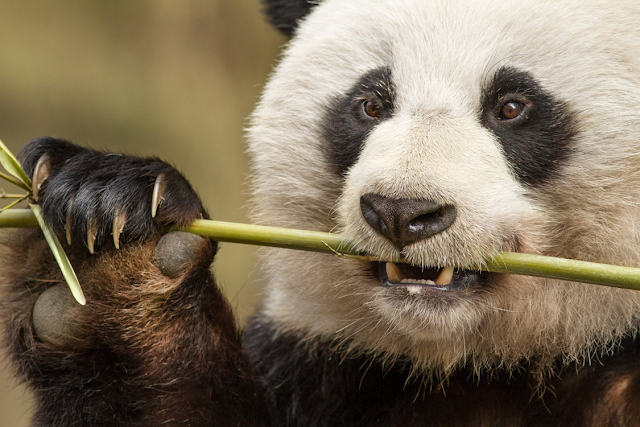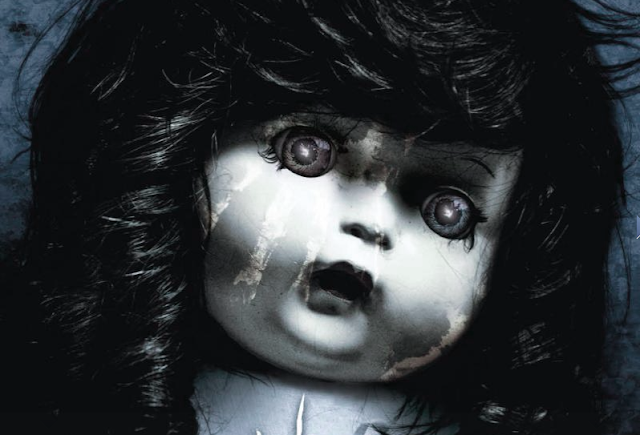'Born in China' is an Earth Day Extravaganza!
 |
| Doesn't do martial arts. Isn't part of a franchise. .... this time. |
Born in China Review
 Born in China DisneyNature’s annual Earth Day movie takes viewers on enchanting journey throughout the vast outlying regions of China. From the first opening sequence of a legion of Red-Crowned Cranes launching themselves gracefully into the sky, narrator John Krasinski lets the audience know that everything is cyclical: the seasons, life, and death. This theme is central to the tales told in Born in China. And it’s evocative of another beloved Disney film, The Lion King with it’s circle of life imagery.
Born in China DisneyNature’s annual Earth Day movie takes viewers on enchanting journey throughout the vast outlying regions of China. From the first opening sequence of a legion of Red-Crowned Cranes launching themselves gracefully into the sky, narrator John Krasinski lets the audience know that everything is cyclical: the seasons, life, and death. This theme is central to the tales told in Born in China. And it’s evocative of another beloved Disney film, The Lion King with it’s circle of life imagery. |
| Red-Crowned Crane. Not a member of the Furious Five. |
Krasinski of The Office fame takes a light, often playful even, tone with the narration of Born in China. Some of the humor is cheesy and kid-geared, but for the most part it’s a fun dialog that’s a refreshing change from the dull posh British accent that’s oh so often been the default audio in documentaries. His conversational energy makes us feel even closer to the story and keeps things fresh.
We get to not only glimpse, but to be fully immersed in these sweeping locations across China, places far beyond our reach. They’re brought to us in majestic high definition images. Spring, summer, fall and winter go round and round during the course of Born in China and time-lapse techniques are used to paint the changing landscapes of each season. But perhaps even more thrilling is watching the goings on of three main animal families. First, we see a sprawling Golden Snub-Nosed Monkey community in the forests. Tao Tao, a once coddled little monkey is faced with the cold hard fact: he’s no longer the center of attention. When his mother has a new baby, a recently displaced Tao Tao ends up striking it out on his own to live with a band of other young, unruly, male monkeys: The Lost Boys. (Disney cannot resist a great Peter Pan reference!). The acrobatic antics of these gifted gymnastics make these scenes especially energetic and pure joy!
 |
| Quiet, reflective monkey is being quiet and reflective. |
Next, we descend on the great mountainous expanse of the Qinghai Plateau. In one of the most moving and beautiful scenes the cameras pan out and we see the treacherous, craggy and tricky to maneuver Himalaya mountains, the home of the Snow Leopards. The sky scraping height of the peaks --it’s one of the highest mountain elevations on Earth!- makes it difficult to breathe, and the weather at any given moment can change in a flash. In just a mere thirty minutes the Himalayas can become one of the most inhospitable climates. This majestic mountain range is where these big cats thrive, and where we meet our second family, new mama Dawa and her two young cubs.
The third animal family is the one most iconic to China: pandas! In a sunny bamboo grove, Giant Panda Ya Ya passes her days hugging and cuddling her daughter Mei Mei. The cute, pudgy little cub often tumbles and rolls down the hills in the excruciatingly adorable way that only a baby panda can.Cooing, all the while, in a way that sounds uncannily like a human baby! Mei Mei’s curious personality shines through from the get-go, and seeing her explore the world around her is delightful. Especially, when she spots a Red Panda lounging in the high tree branches for the first time, and becomes slightly obsessed with this new face! Maternal love rules the day in Ya Ya and Mei Mei’s storyline. The loving gestures between this mama and her little bundle of joy are beyond adorable. This intimate display is straight up heartwarming-- there’s no other word out there to put a name to the feelings this mama bear’s scenes evoke!
Along with the flock of Red Crowned Cranes, we get another ‘in-between’ family that we follow during the gaps between the big three main families. A sprawling herd of Chiru, also known as Tibetan Antelopes, parades across the screen. The males are reminiscent of Prince Ashitaka’s elk in the Studio Ghibli anime Princess Mononoke. (People, nature is BEAUTIFUL.) The lives of the Chiru too, are centered around the cycles of the seasons. It’s spring when we first accompany the hundreds of females that migrate on their own, hundreds of miles away from the male Chiru just after mating season. Once they reach their destination, the females give birth to dear little "deer" (heh) babies that first stumble and wobble, but then prance and leap around the plateaus like little live-action Bambi extras! Watching the Chiru go the distance, migrating to the traditional birthing grounds, and then make their homecoming and return to the herd with their calves in tow, is inspiring. Hercules has got nothin’ on these Chiru gals.
 |
| I think we could all use a bear hug like this. :) |
Traditional Asian instruments make up the accompanying soundtrack, working in beautiful harmony with the breathtaking vistas that expand across the screen. They have a mystical and enchanting sound that adds to the mystique and magic of the nature we see in each region. Think the score from Mulan meeting that of Kung Fu Panda: Born in China's score would be their love child.
Born in China is a very PG documentary, one that appeals to all audiences. Whether you’re four, or twenty-four (like me), or even more (!) this has something special for everyone. Parents with little ones don’t need to fret. There’s no bloodshed. We barely see a streak in the snow when the mama Snow Leopard, Dawa, slashes her paw open on a rock, critically injuring herself. And the predator-prey scenes are quick-as-a-blink. When a Hawk spirits away a baby monkey from Tao Tao’s golden snub-nosed monkey community, snatching her right off a tree branch, we barely see a flash of brown. We don’t see the bird chowing down on the kill, but Krasinski gently says what happened: not just that the monkey is bird food, but it’s all about the cycles. The death is mentioned, but it’s not made to be something scary or negative.Sometimes, monkeys get picked off by their predators, sometimes they die.
 |
| Dawa and one of her babies. |
 |
| Thatfacethatfacethatfacethatface. AWWWW! |
Born in China is a breathtakingly filmed documentary. Director Chuan Lu’s and Cinematographer Shane Moore’s patience in filming paid off. The rare footage of these three animal families in combination with a strong guiding narrative makes Born in China the kind of movie that has the power to truly move your soul, and warm your heart for the duration of its run time. Even long after the credits have scrolled across the screen. Krasinski’s playful narration adds an element of humor to Born in China and the way he tends to humanize his comments for each animal really makes their personalities shine. He makes their experiences and stories even more relatable and universal. During opening week DisneyNature is donating ticket proceeds to the World Wildlife Fund as a nice little incentive to celebrate endangered species. This kind gesture aside, Born in China ought to not just be seen and celebrated on Earth day, but for many more days to come. Take the chance to see this in cinemas while you can, you won’t regret it. There are countless ways you can show you care about the lives of animals and the health and well-being of nature. Being an observer, and learning all you can, is another step toward consciousness and living a thoughtful and deliberate life! Start with seeing this little gem.
 |
| The Chiru strutting their stuff. |
all images from IMDB




Comments
Post a Comment